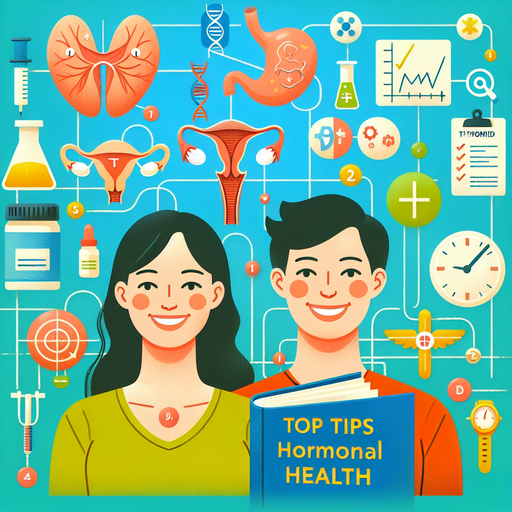Introduction:
Hormonal health plays a crucial role in our overall well-being. Our hormones are responsible for regulating various bodily functions, such as metabolism, mood, and reproductive health. When our hormones are out of balance, it can lead to a range of health issues, including weight gain, fatigue, and even fertility problems. In this article, we will discuss the top tips for maintaining hormonal balance and improving your overall health.
Understanding Hormonal Health:
Before we dive into the tips, it is essential to have a basic understanding of hormonal health. Hormones are chemical messengers that are produced by various glands in our body. They travel through the bloodstream and regulate different functions in our body. Our endocrine system is responsible for producing and releasing hormones, and any disruption in this system can lead to hormonal imbalances.
Tip 1: Eat a Balanced Diet:
A healthy and balanced diet is crucial for maintaining hormonal health. Our diet plays a significant role in the production and regulation of hormones. It is essential to include a variety of foods in our diet, such as whole grains, fruits, vegetables, lean proteins, and healthy fats. These foods provide our body with essential vitamins, minerals, and other nutrients that are necessary for hormone production. Additionally, avoiding processed and sugary foods can help prevent hormonal imbalances.
Tip 2: Manage Stress:
Stress can wreak havoc on our hormones. When we are stressed, our body produces a hormone called cortisol, also known as the stress hormone. High levels of cortisol can disrupt the production of other hormones, leading to imbalances. Therefore, it is crucial to find ways to manage stress, such as practicing mindfulness techniques, exercising, or engaging in a hobby. Taking care of our mental health is essential for maintaining hormonal balance.
Tip 3: Get Enough Sleep:
Getting adequate sleep is vital for our overall health, including hormonal balance. While we sleep, our body repairs and regulates various bodily functions, including hormone production. Lack of sleep can disrupt this process, leading to hormonal imbalances. Aim for 7-9 hours of sleep each night to help maintain hormonal health.
Tip 4: Exercise Regularly:
Regular exercise not only helps us maintain a healthy weight but also plays a crucial role in hormonal balance. Exercise can help reduce stress levels, improve sleep, and regulate insulin levels, all of which contribute to hormonal health. It is recommended to engage in moderate exercise, such as brisk walking, for at least 30 minutes each day.
Tip 5: Avoid Toxins:
Toxins can disrupt our endocrine system and lead to hormonal imbalances. These toxins can be found in everyday products such as cleaning supplies, personal care products, and even in our food. It is essential to read labels and avoid products that contain harmful chemicals. Additionally, choosing organic and natural products can help reduce our exposure to toxins.
Tip 6: Consider Supplements:
In some cases, our body may require additional support in maintaining hormonal balance. In such cases, supplements can be beneficial. It is essential to consult with a healthcare professional before starting any supplements, as they can interact with other medications or have adverse effects. Some supplements that may help with hormonal balance include omega-3 fatty acids, vitamin D, and ashwagandha.
Tip 7: Practice Self-Care:
Taking care of ourselves is crucial for maintaining hormonal health. This includes taking time for ourselves, engaging in activities we enjoy, and prioritizing self-care. When we neglect our well-being, it can lead to increased stress levels and imbalances in our hormones. Remember to listen to your body and give it the care and attention it needs.
Conclusion:
Maintaining hormonal balance is vital for our overall health and well-being. By following these top tips, including a balanced diet, managing stress, getting enough sleep and exercise, avoiding toxins, considering supplements, and practicing self-care, we can support our body in regulating our hormones. Remember to consult with a healthcare professional if you experience any persistent symptoms of hormonal imbalances. Take care of your body, and it will take care of you.


